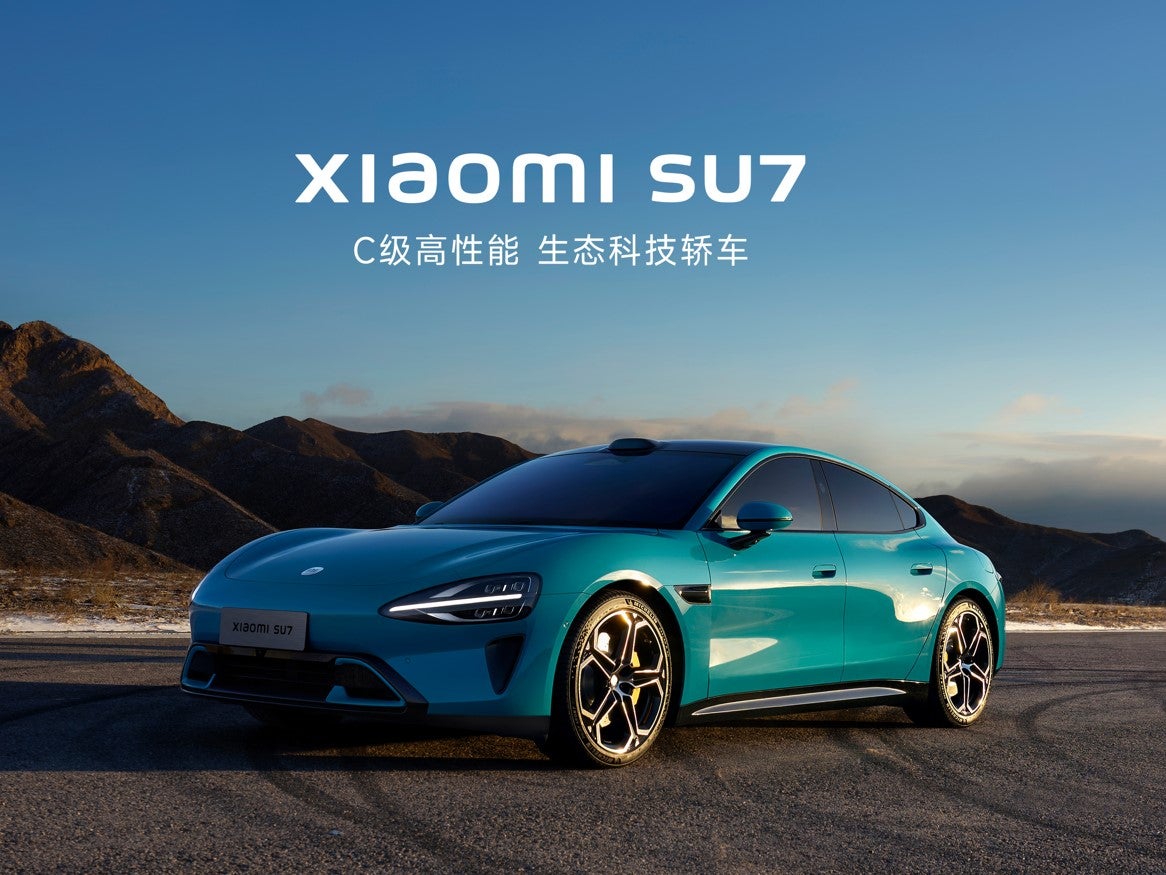
China’s Xiaomi Corporation mapped its entry into the global vehicle market at the end of 2023 with the unveiling of its first model, the SU7 battery-powered sporty sedan, along with its core in-house EV technologies. The SU7 is scheduled to go into production later this year at BAIC Group.

Discover B2B Marketing That Performs
Combine business intelligence and editorial excellence to reach engaged professionals across 36 leading media platforms.
At the pre-launch event the Beijing-based company, better known as a manufacturer of smartphones, described the SU7 as a “full-size high-performance eco-technology sedan” aimed at pushing “the limits of performance, ecosystem and mobile smart space”.
The group’s chairman and CEO Lei Jun claimed that the launch of the SU7 represents a “crucial step towards closing the loop of the Human -Car-Home smart ecosystem”. The company said it invested CNY10bn (US$1.4bn) in its EV research and development (R&D) phase and now employs some 3,400 engineers and more than 1,000 technical experts “in critical domains both in China and abroad”. Lei Jun told reporters “the goal is to become one of the world’s top five automotive manufacturers”.
The company claims that under its Xiaomi EV Technology division it has five core areas of expertise, including electric motors, batteries, die-casting, the Xiaomi Pilot autonomous driving system and smart cabins.
Xiaomi unveiled three in-house electric motors at the event, the HyperEngine V6 21,000rpm unit producing up to 425kW, the HyperEngine V8 27,200 rpm unit scheduled to go into production in 2025 and a 35,000rpm powertrain currently under development. The company said they are designed to rival the performances of traditional large V6 and V8 internal combustion engines. All feature the company’s Bi-directional Full Oil Cooling Technology along with its patented S-shaped oil circuit and staggered silicon steel laminations designs.
Xiaomi also unveiled its in-house CTB Integrated Battery Technology based on Inverted Cell Technology and multifunctional elastic interlayer. They have an energy capacity of up to 150 kWh and a theoretical CLTC recharge range exceeding 1200 km. The batteries will be produced by BYD, China’s largest EV maker and a major battery producer.
Xiaomi’s Pilot autonomous driving system uses two Nvidia Orin high-performance chips with a combined computing power of 508TOPS. It is based on three key technologies: Adaptive BEV Technology, Road-Mapping Foundational Model and Super-Res Occupancy Network Technology. The smart cabin adopts a “human-centric” interaction architecture and features a 16.1-inch 3K central console, a 56-inch head-up display.






